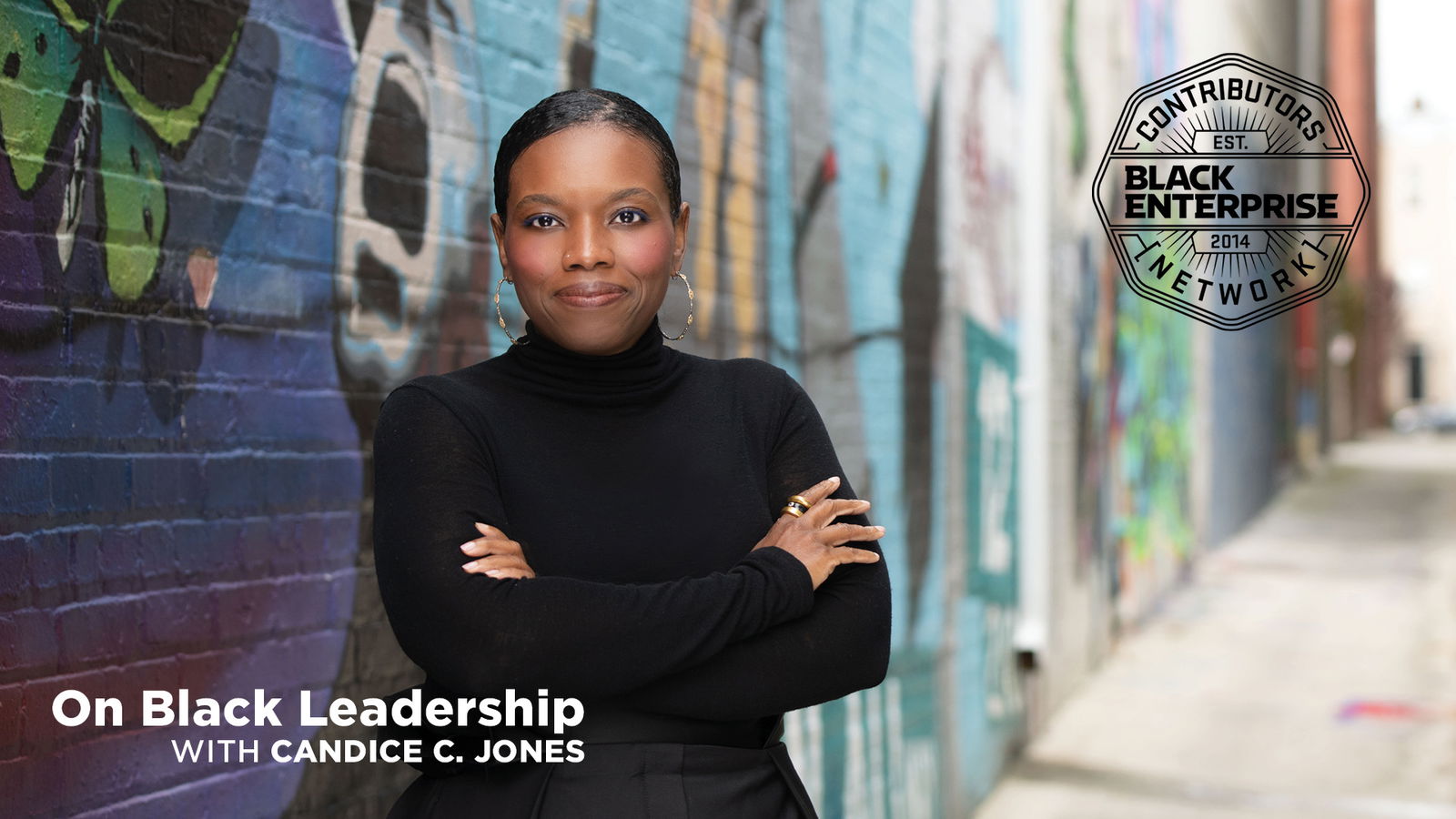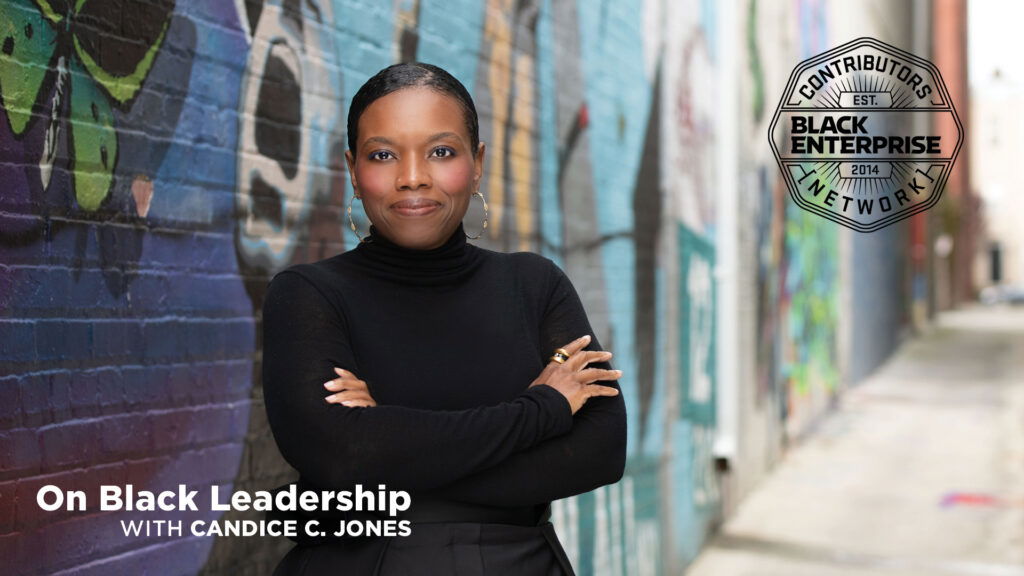
February 18, 2025
On Black Leadership: The Role Of Reverence In Leadership
Reverence is one of the least recognized and most important principles.
Written by Candice C. Jones
Reverence is one of the least recognized and most important principles we can apply to our leadership practice. With success comes the temptation to believe it’s all about us and relish in the empty tenets of individual exceptionalism. That analysis misses a few things: 1.) no one arrives at their destination alone (see our previous discussion on mentors), and 2.) there is no substitute for hard work.
There is a different approach to leadership that is more about advancing the work than bearing a title. It’s not, “I’m a CEO,” but, “I have this assignment.” If you can focus on the assignment with clarity, reverence for the task follows naturally.
I remember being in a leadership position where I had two potential successors. One was excited, enamored with the title and the power and position it afforded. The other was trepidatious. I believed the latter candidate was stronger and I appreciated that they were weighing the gravity of the assignment. The position needed quick thinking, and they appreciated that. The candidate had reverence for what was demanded and knew there was a lot they couldn’t know about what they would be taking on.
KNOW YOUR WEAKNESSES
Another important aspect of leadership is knowing your own weaknesses. You need to be clear about what you understand and what you don’t.
It doesn’t mean we can’t play to our strengths or take on things we haven’t done before. It requires us to build skills outside our area of expertise and put in the work to develop new muscle memory. You need to spend the lion’s share of time on what you don’t know. You’re not going to become an expert on those things, but you need a real grasp to be an effective leader.
If I don’t understand operations, I need to get out to the facilities that house operations on a regular basis. You cannot just play to your strengths; you have to assess and compensate for your weaknesses.
I’m a Chicago Bulls fan. I love when Michael Jordan talks about what he didn’t have early in his career. The Detroit Pistons were the Bulls’ nemesis. The Bulls couldn’t get out of the Eastern Conference. Jordan talked about the Pistons’ aggressive style and the fact that the Bulls didn’t have the weight and muscle tone to match them effectively. It wasn’t just about skill; it was about getting physically stronger. They had to assess their weakness and address them head-on. They had to put in the work.
That work will make you a metaphorically “stronger” leader.
LEAN INTO LEARNING
Addressing weaknesses leads naturally to learning. We cannot rest on our laurels as we become more senior in our careers. We have to constantly lean into learning. We don’t enjoy demographic privilege.
We can debate whether or not that’s fair, but if we know it’s true, why not rise above it? Privilege breeds mediocrity. It shows in the quality of work or lack thereof.
The quickest way to learn something is to ask questions. Certainly, read what you can get your hands on and leverage your professional network night and day—but ask questions! People are afraid to ask questions. I’ve seen that too many times in my career. Be clear about what you don’t understand and ask the question. Most of the time you find someone else was also thinking it and too afraid to ask.
CHALLENGE YOURSELF
At what point do you become an expert? Isn’t there always more we can learn?
At one point in my career, I left philanthropy because it was 30,000 feet from the action. And while I couldn’t pass up a White House fellowship, I was ready to return to proximate service when it was over.
I have done a lot of policy work in my career with philanthropy and government. I felt confident about orchestrating policy change, but I knew that I didn’t have much experience implementing it. I took a job—for less pay—that offered the opportunity to gain operational experience, and I’m a more well-rounded leader because of it.
MIND YOUR MODELS
I’d met a lot of exceptional people who taught me about having reverence for the work well before I got into my career.
Many of my law professors taught me reverence early in my professional training. One of my professors, Randy Hertz, models reverence so well, as do the legion of people he’s taught. There’s Bryan Stevenson. If I email him at midnight about some byzantine case, I will have an answer by 2 a.m. People note the inspired oration and the notoriety he has achieved, but please do not miss the incredible work he has put into everything he has touched. Then there’s Kim Taylor-Thompson, whose model we covered earlier in this series.
I’d also seen it growing up as a Black woman being raised by a Black woman— the earnestness of an honest day’s work and a house that is well kept. My mom never takes a sick day. She’s never late. She volunteers at church and in her community all the time. She has a lot of reverencefor her varied assignments: colleague, community member, mother.
When you have reverence, you respect the work and yourself. You do your homework. You ask informed questions that leverage what you read and who you know, including mentors and advisors.
Reverence is not about you, a job title, or a career trajectory. It’s about the work, and what you can bring to it.

Candice C. Jones joined the Public Welfare Foundation in Washington, D.C., as its president and CEO in 2017. Previously, she served as Senior Advisor at Chicago CRED, an organization that focuses on gun violence in Chicago.
Candice received her J.D. from New York University School of Law. To learn more about Candice’s background and work, find her on LinkedIn.